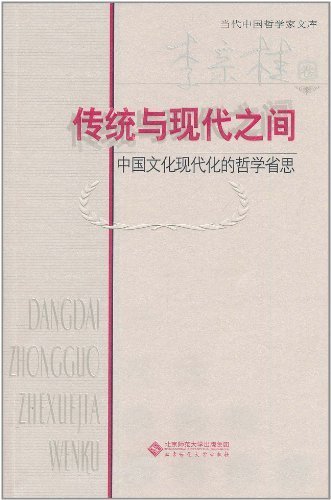Between tradition and the modern world

Between Tradition and the Modern World
Author: Li Zonggui
Publisher: Beijing Normal University Publishing Group
Between Tradition and the Modern World reflects over 20 years’ effort by Li Zonggui. The book consists of three parts: literature, philosophy and Confucianism. He analyzed the methodology and values in the process of cultural modernization from the perspective of philosophical reflection and cultural reconstruction.
In the course of rational exploration of traditional Chinese culture, various philosophical trends and schools have accumulated important status and contemporary value. The book illustrated in-depth theoretical questions, such as trends of philosophical thought in China, and outlined the basic spirit, characteristics and development path of Chinese culture. Li argued that Chinese culture gradually formed its unique spirit through a long period of development. It contains basic content relating to value systems, ways of thinking, social psychology, ethics and aesthetics of the Chinese nation, and the good part of it has become a driving force that has pushed the nation forward.
Li combined literary and philosophical studies to come up with his own research method, which is characterized by enriching the inner spirit of literature with philosophy and inspecting philosophy from a literary perspective. Based on this research method, Li suggested learning from New Confucianism, which encourages exchanges between Western and Chinese cultures while emphasizing the respect and affection that should be paid to national culture.
In addition, by comparing the differences between Chinese and foreign philosophies, Li attempts to chart the future development of Chinese philosophy. He thinks that in the future, Chinese philosophy will diversify and flourish in all directions, replacing the previous condition in which a single paradigm was used for research, and politics was the only academy. Meanwhile, the former research methodology and state of mind dominated by isolationism and narcissism were discarded under the influence of broader and more frequent academic exchanges. New methods characterized by openness and interactivity based on shared norms have been created. Also, in the chapter of “Thinkers and Literary Traditions,” Li elaborated on how great thinkers have promoted history. Thinkers helped to establish four major traditions in Chinese history, namely cultural conservation, reform, criticism and a cultural approach to serving politics.
Since the 1990s, the market economy reform and the cultural research boom characterized by the “Classical Learning Fever” have promoted the social and cultural modernization of contemporary China. However, this social transformation is extremely complex and arduous. It is generally believed that social transformation needs support from the national spirit and ample humanistic care. Cultural and philosophical research in this book reflects and adapts to the needs of this era. Li believes that society must have the correct understanding and overall grasp of fine cultural tradition and thoughts, which is an indispensable theoretical base for humanistic care in the process of social transformation. Fine cultural traditions bring vitality into society and guide the formation of moral standards and value systems. They also help strengthen national cohesion and build up national identity.

 PRINT
PRINT CLOSE
CLOSE